Hanoi and the provinces from the Northern to Central regions are currently experiencing the first heat wave of 2023. With average temperatures exceeding 33 degrees Celsius, some provinces have even reached 38-39 degrees Celsius, leading many to believe that summer has arrived.
However, according to forecasts from the National Center for Hydro-Meteorological Forecasting, this first heat wave will last only three days. By the weekend, cold air is expected to move in, causing temperatures in Hanoi to drop to between 19-23 degrees Celsius. In some Northern provinces, temperatures will fall to 17-18 degrees Celsius, bringing a slight chill.
The significant temperature fluctuation of over 10 degrees Celsius places us in a “climate twist” scenario, a phenomenon that scientists refer to as “yo-yo weather“. This can surprise our bodies, which may not be adequately prepared, increasing the risk of illness, colds, or even strokes.
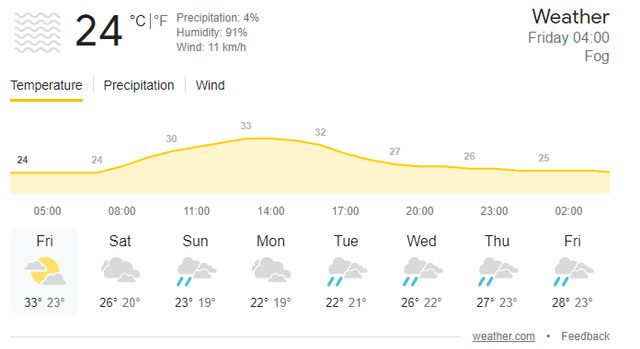
Temperature fluctuations exceeding 10 degrees Celsius are predicted for Hanoi this weekend.
Dr. Aaron Bernstein from the Harvard T.H. Chan School of Public Health stated: “The human body has the ability to adapt to temperature changes. However, this mechanism cannot be activated in just a few hours. It takes several days to two weeks for the body to adjust.“
So, how can we protect our health during these “yo-yo weather” days? Who will be most severely affected by it? Let’s explore:
What is “yo-yo weather” and how can it make you sick?
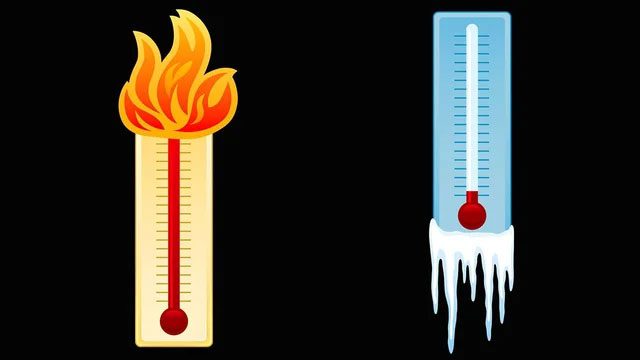
Weather changes can exacerbate human health issues. (Photo: Nimalspace).
“Biometeorology“ is a scientific field that studies the impact of the atmosphere on the biosphere, including human health. This field has garnered significant attention in recent years due to climate change and global warming, which have led to an increase in extreme weather events.
One such event is the sudden change in weather over short periods, with abrupt transitions from heat to cold or vice versa. Biometeorological experts indicate that such fluctuations confuse plants and animals, disrupting the balance of fragile ecosystems.
Ultimately, these weather changes can worsen human health issues. “I call it the ‘yo-yo weather’ phenomenon, with erratic ups and downs. It’s similar to yo-yo dieting, both of which are harmful to your health,” said Dr. John Whyte, Chief Medical Officer of WebMD.
According to him, “yo-yo weather” often causes symptoms such as headaches, fever, fatigue, runny nose, and watery eyes. Among these, a runny nose is the first and most common symptom.
This is because the nose is an opening on the body that contains a wealth of blood vessels sensitive to temperature. These blood vessels constrict when it is cold and dilate when temperatures rise.
When the weather changes abruptly and erratically, the constriction and dilation of the blood vessels in the nose can trigger a runny nose. It’s similar to stepping from the hot sun into an air-conditioned room, where your nose may begin to run.
Decreased atmospheric pressure when it rains can lead to headaches
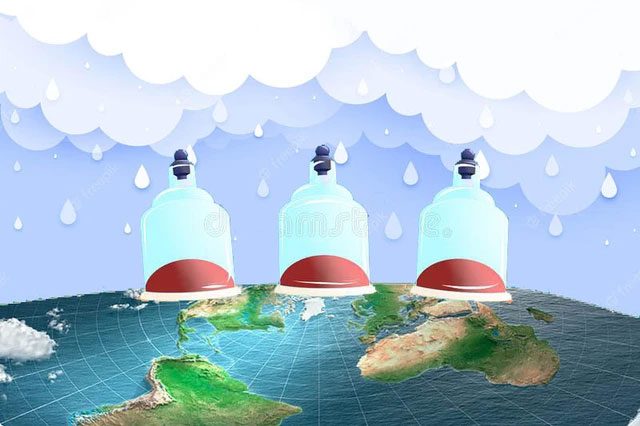
Weather changes can trigger migraines and other types of headaches. (Photo: Genk).
Headaches are the second most common symptom when the weather changes suddenly, especially with the expected cold and rain this weekend in the North. This is due to decreased temperatures and increased humidity that lower atmospheric pressure.
Atmospheric pressure is the primary factor determining the partial pressure of oxygen in the air we breathe. If atmospheric pressure drops, the partial pressure of oxygen also decreases.
Our brains are very sensitive to these changes in oxygen levels. Therefore, on days when atmospheric pressure decreases, blood vessels in the brain dilate to increase oxygen flow. For some individuals, this can trigger headaches, similar to the experience of flying or climbing from the foot of a mountain to the summit.
In 2015, researchers collected sales data for a type of headache medication in Japan and found that sales peaked on days with lower atmospheric pressure, indicating impending bad weather.
That same year, a study published in The Journal of Headache and Pain by Taiwanese scientists demonstrated that weather changes could trigger migraines and various other types of headaches.
Be cautious of viruses and colds
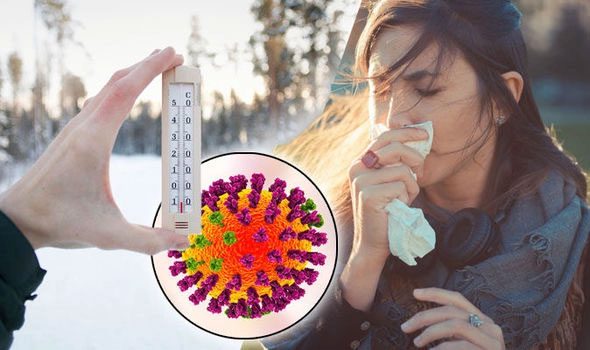
Temperature changes can increase your risk of viral infections or colds. (Photo: Express).
While temperature changes themselves do not make you sick, they can increase your risk of viral infections or colds. According to the Centers for Disease Control and Prevention (CDC), cold viruses are most active during the winter and spring months.
A 2015 study published in the Proceedings of the National Academy of Sciences found that cooler temperatures help cold viruses thrive within host bodies.
Akiko Iwasaki, co-author of the study and professor of immunobiology at Yale School of Medicine, stated: “The more cold air you breathe in, the easier it is for the common cold virus to replicate in your nose.”
Yo-yo weather intensifies this effect, as sudden temperature changes can weaken our immune systems. Dr. Whyte explained that this is because our bodies enter a state of stress, and stress is detrimental to the immune system.
Gaurab Basu, director of the Center for Health Equity Education & Advocacy at Cambridge Health Alliance, agreed: “Our bodies maintain a delicate balance, constantly working hard to sustain a certain body temperature. Therefore, when the temperature drops suddenly, the body must find ways to compensate for that extreme change.”
Older adults with cardiovascular diseases and strokes
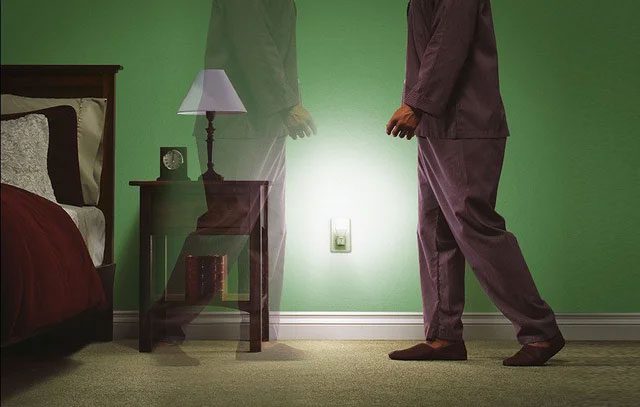
Older adults with cardiovascular diseases need to be cautious of yo-yo weather. (Photo: Men’s Health).
Dr. Whyte pointed out that a particular group that must be cautious of “yo-yo weather” is older adults with cardiovascular diseases. A study published in the journal Lancet indicated that days with sudden weather changes lead to increased cases of stroke-related deaths.
Dr. Bernstein explained that thermal stress produces stress hormones that can put the heart and circulatory system under strain. “Sudden drops in temperature can lead to hypothermia and cause blood to become thicker, increasing the likelihood of blood clots that lead to strokes, heart attacks, or blockages due to blood clots in the limbs,” he stated.
Shingo Kajimura, a professor of cellular and tissue biology at the University of California, San Francisco, added: “When exposed to cold temperatures, the body tries to prevent heat loss by constricting blood vessels. This constriction can cause significant increases in heart rate and blood pressure, which can lead to strokes or heart attacks.“
This is why Professor Kajimura receives many emergency calls at midnight, when “older adults get up to use the bathroom, and stepping onto the cold floor can trigger blood vessel constriction,” he explained.
How to cope with “yo-yo weather”?
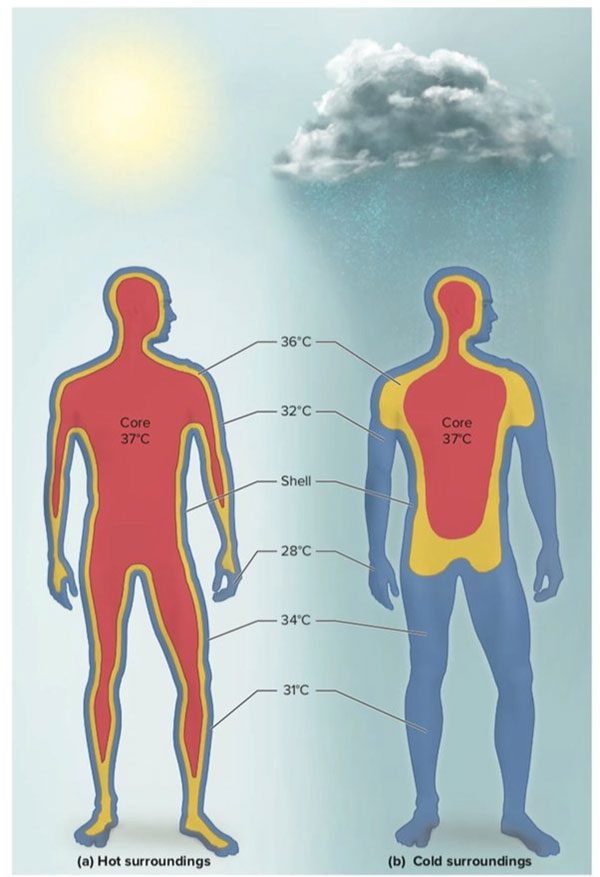
You can proactively cope with this extreme weather in various ways. (Photo: Quora).
While it is impossible to fight against sudden weather changes, you can proactively cope with this extreme weather in several ways.
First, always pay attention to keeping your body warm. Wearing thin but layered clothing is a suitable choice during sudden weather changes, as you can easily remove or add layers as needed.
Being mindful of maintaining your body temperature at night will also help prevent strokes. Older adults should be encouraged to wear socks to bed during colder weather and limit outdoor bathroom trips to avoid exposure to cold air, especially during the night when monsoon winds arrive.
Drinking enough water, getting sufficient sleep, and maintaining a healthy diet are essential measures to keep your immune system strong during “yo-yo weather” days. Additionally, practicing infection control measures such as wearing masks in public, washing your hands frequently, and avoiding touching your eyes, nose, and mouth will help you prevent colds.
For runny noses caused by weather changes, over-the-counter antihistamines and nasal sprays can save you a trip to the doctor. If you are prone to weather-related headaches and have a prescription medication, be sure to follow your treatment plan during these “yo-yo weather” days.
If this is your first time experiencing a weather-related headache, try taking acute headache medication early, right after symptoms start. If symptoms do not disappear, you may need to see a doctor to start discussing your condition. Once again, don’t forget to dress warmly when going outside on these days.


















































